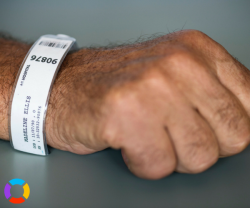Fentanyl Overdose Survivors Found to Require Little to No Hospital Treatment
People who survive fentanyl overdoses after being revived with naloxone are found to require little if any hospital treatment following resuscitation. Generally, opioid users — especially those who suffer from opioid addiction — are at higher risk for hospitalization compared to the general population. But this new finding could help first responders and emergency departments develop a more standard procedure for handling fentanyl overdoses, and reduce the amount of government resources being used to treat overdose victims.
Looking at Treatment Data for Fentanyl Overdose Survivors

Many U.S. hospitals monitor fentanyl overdose survivors for between six and 12 hours after admission, and choose to admit some patients to beds out of concern they may need additional doses of naloxone to stay alive. However, the latest study published in Annals of Emergency Medicine found that fentanyl overdose survivors only need to stay at the hospital for an average of 173 minutes. Researchers arrived at this finding after looking at treatment data for just over 1,000 fentanyl overdose victims who visited hospital emergency departments between September and December 2016.
Lead study author Dr. Frank Scheuermeyer says the risk for dangerous complications following fentanyl overdose is most likely overstated when naloxone is used promptly — leading to unnecessary treatment that puts strain on hospital resources. Societal healthcare costs for opioid abuse, dependence, and misuse in the U.S. costs an average of $25 billion per year, with chronic drug users visiting hospital emergency rooms at a rate 30% higher than that of the general population.
Of the 1,009 patients examined for the study, 75% were classified as low-risk upon arrival, and safely discharged within two hours. Patients who had lower oxygen levels and who were less alert stayed at the hospital for a bit longer so their respiration and heart function could be monitored. Only one fentanyl overdose patient died after being discharged from the hospital — a 35-year-old man who declined the hospital’s offer of a naloxone kit upon discharge.
Helping Survivors of Fentanyl Overdose Stay Clean
Naloxone is an opioid overdose reversal drug with the ability to revive people who overdose on heroin, painkillers, and dangerous synthetic opioids like fentanyl. Patients who overdose on opioids can often be revived within five minutes of receiving naloxone. The U.S. Surgeon General recently released an official statement urging Americans to obtain naloxone so they can use the drug to revive friends, family, and community members who suffer an opioid overdose.
Many fentanyl overdose patients receive visits from social workers who talk to them about their needs for housing and drug detox programs. Being revived with naloxone gives these patients another chance to seek addiction treatment, get clean, and avoid the risk for a future overdose. Opioid addiction is commonly treated using a medical detox or medication-assisted treatment — both of which involve the use of FDA-approved medications that relieve drug cravings and opioid withdrawal symptoms.
Opioid detox treatments are often combined with therapy to teach overdose patients skills that help them stay sober after completing their treatment programs. Cognitive-behavioral therapy, dialectical behavior therapy, and experiential therapy are just some therapies that help patients regain their confidence and learn more about personal triggers driving their addiction. Detox and therapy treat opioid addiction as a whole both physically and mentally so patients face a greater chance of staying sober following treatment.
How to Find Treatment for Opioid Addiction
Drug detox centers are located in nearly every city and state to help Americans fight and overcome opioid addiction. Use our drug detox center directory to find treatment programs near you, or to find treatment in a city and state closer to supportive friends and loved ones.
Alternately, call our 24/7 confidential helpline at 800-996-6135 to discuss all your available treatment options with an experienced addiction counselor. We’ll perform a free insurance verification check, and help you find a drug detox center with all the accommodations you need so you or your loved one can fully and successfully overcome opioid addiction.

